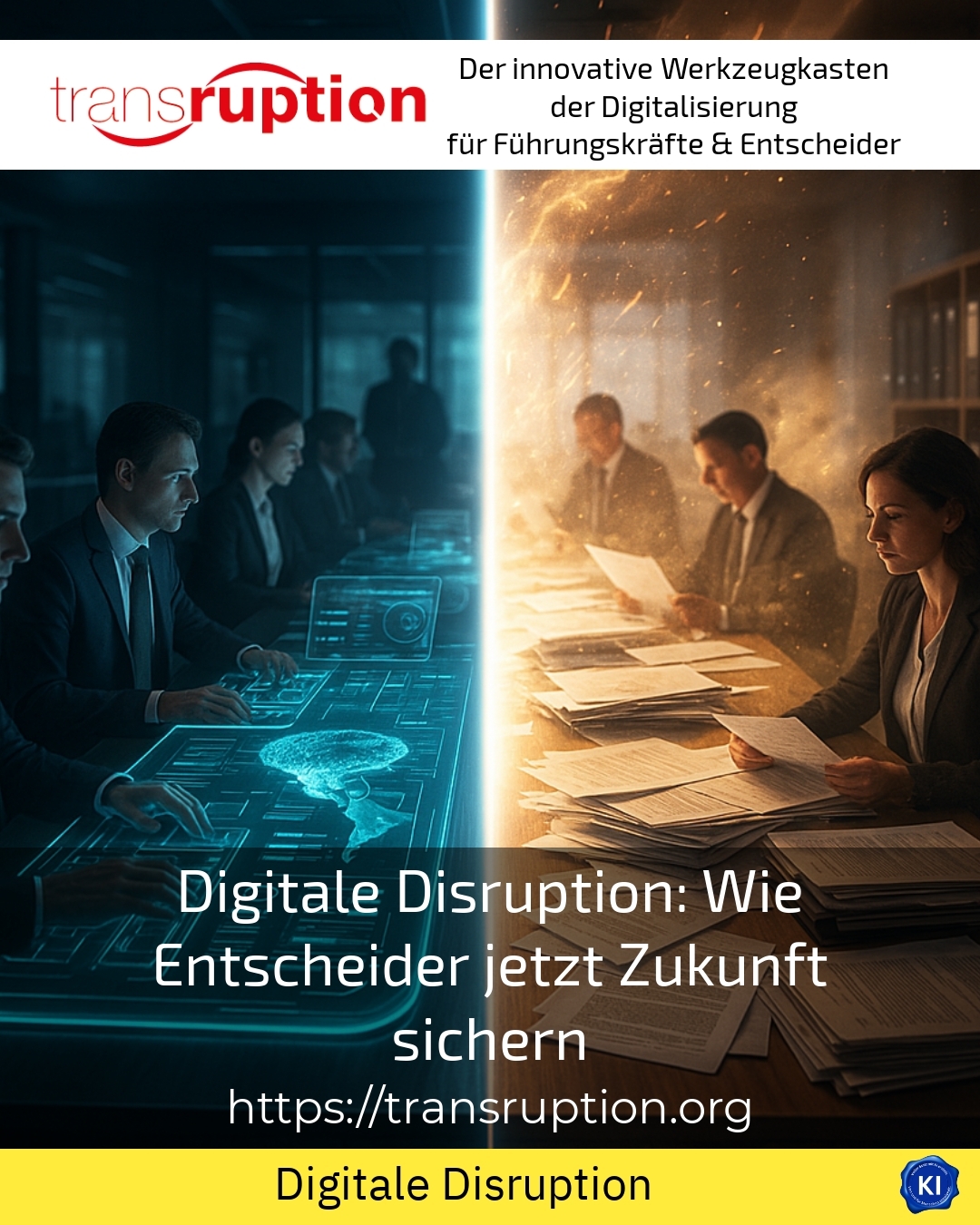The Digital disruption is increasingly characterising the economic environment. Decision-makers are faced with the challenge of safeguarding their company against the upheavals. This is not just about technology, but also about strategic reorientation to ensure future viability.
Digital disruption as a driver of profound change
The term Digital disruption refers to a radical change in existing markets and business models through digital technologies that create new value creation networks. This often creates completely new industries, while traditional providers come under pressure.
Examples of this development can be found in numerous sectors: Airbnb has revolutionised the hotel industry with the use of private accommodation. Uber has reshaped the taxi industry with driver-based apps. Netflix has redefined the media world with streaming services. In all cases, traditional business models have been challenged and in some cases displaced by more flexible, customer-centred digital solutions[2][9].
How managers can deal with digital disruption
Decision-makers should not view digitalisation processes as a mere transformation, but as a comprehensive disruption that breaks up existing structures. The following areas of action are crucial here:
- Recognising disruptive technologies and business models and their potential.
- The willingness to radically scrutinise and redesign existing processes and products.
- Integrating the customer perspective, because modern customers expect personalised and efficient digital services.
Companies such as Amazon have shown how platform strategies can be used to create new control points with customers and thereby gain market leadership. The early utilisation of digital opportunities helps to complement or reinvent traditional business models[4][5].
Practical examples from the business world:
In the financial sector, FinTech companies are enabling fast, digital payment processing, which is forcing traditional banks to modernise their services. The automotive industry is undergoing a disruptive reorientation thanks to Tesla's electric vehicles and autonomous systems. In retail, Zalando has changed the fashion trade through digital sales and personalised customer experiences.
Utilising digital disruption: Impulses for successful projects
Successful support for digital disruption projects requires specially tailored strategies. The integration of agile methods, innovation promotion and an open error culture play a key role here. Decision-makers can be supported with targeted impulses and coaching in order to master digital challenges and secure the future.
The networking of internal expertise and the development of innovation ecosystems also offer tangible benefits. For example, a company from the SME sector has networked with partners and customers by introducing a digital platform, thereby opening up new sources of revenue.
BEST PRACTICE at the customer (name concealed due to NDA contract): In a transruptions coaching project, a traditional logistics provider was supported in implementing digital platform solutions for route optimisation. This reduced costs and increased customer satisfaction. The project helped the company to successfully assert itself against the competition.
Examples from various industries:
An energy supplier uses digital sensor technology and AI to optimise energy flows and offer new services. A trade company relies on a digital customer connection with real-time communication and appointment scheduling to make its service more attractive. In the education sector, digital platforms enable flexible, customised learning opportunities and thus improve customer loyalty.
Digital disruption requires a change of perspective and transformation
Digital disruption poses challenging questions for many companies. How can existing values be preserved and disruptive innovations driven forward at the same time? How can employees be involved in the change and new skills be developed? Effective strategies focus on continuous learning, experimentation and adaptation.
Especially in conservative markets, clients often report challenges due to the high speed of change. Openness to digital impulses and the willingness to rethink old patterns create strengths for the future.
My analysis
The Digital disruption is more than just a technical development. It changes fundamental market mechanisms and requires decision-makers to take a proactive, strategic approach. Companies that see digitalisation solely as a technological issue often fall short of the possibilities. Success comes when digital innovations are used to develop new business models and significantly improve the customer experience. Support through specialised transruption coaching supports relaxed navigation through change.
Further links from the text above:
Digital disruption - Dr Dr Jörn Lengsfeld
Digital disruption - IT portal
Digital disruption in online marketing
Digital disruption: How to make your company crisis-proof
For more information and if you have any questions, please contact Contact us or read more blog posts on the topic TRANSRUPTION here.
















